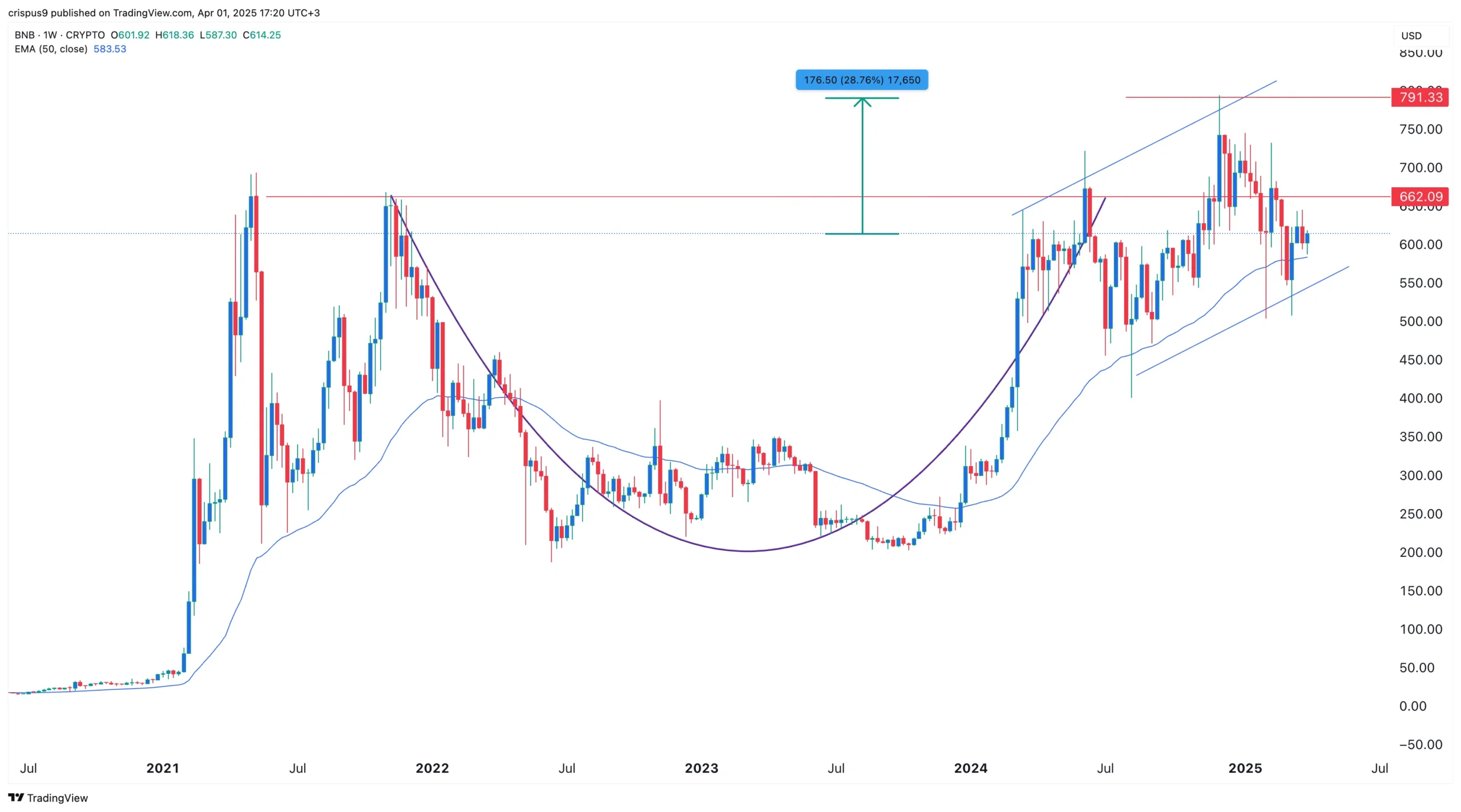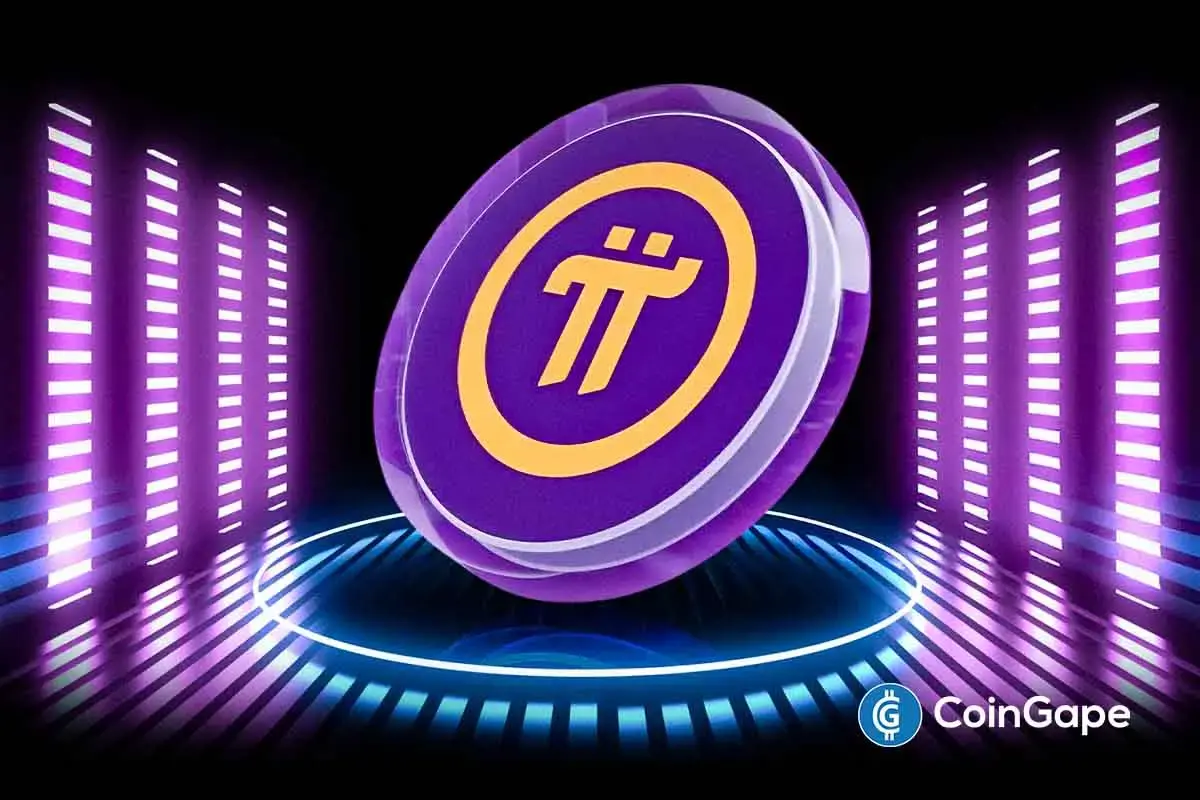Bitcoin
Solana ETF Prospects Fizzle as Cboe Removes Key Applications
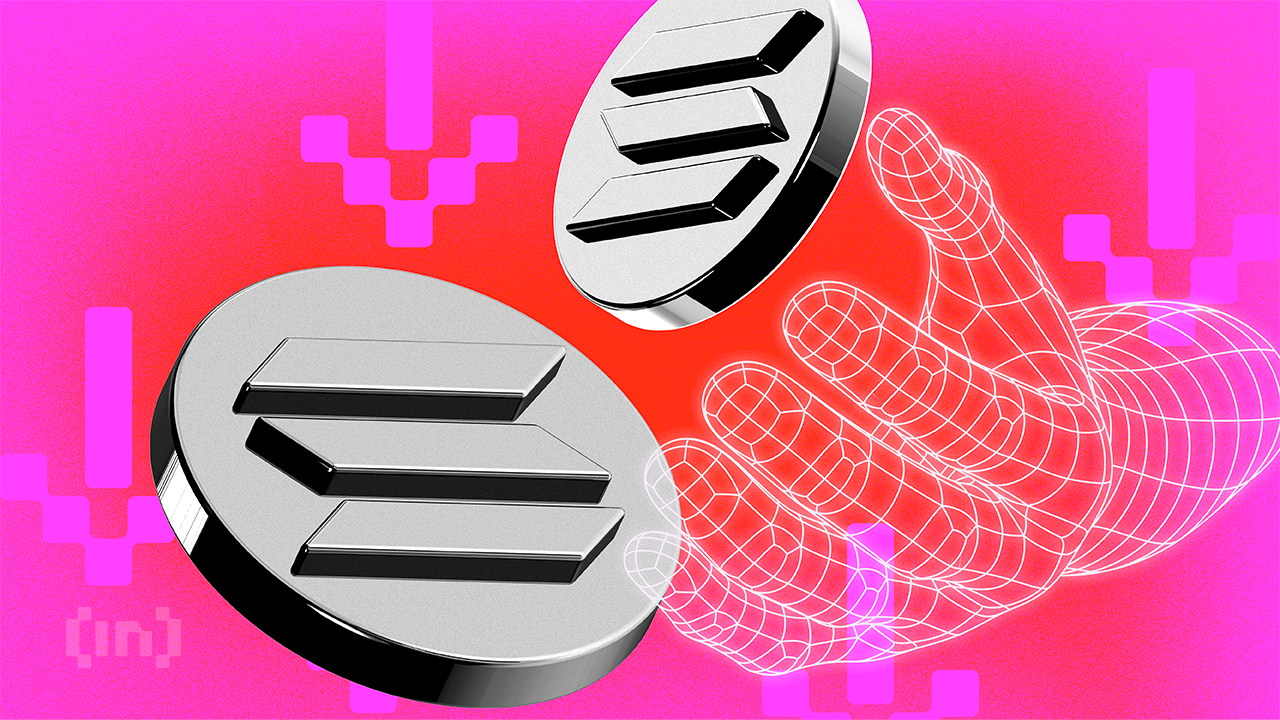

Solana ETF forms have been removed from the Chicago Board Options Exchange (Cboe) website, causing speculation about a potential delay in their launch.
VanEck and 21Shares were the only two companies to file applications for SOL ETFs, leading many to believe it would follow Bitcoin and Ethereum as the next crypto-based financial instrument to hit the market.
Solana ETF Prospects Diminish Following Cboe Move
Recent reports indicate that Forms 19b-4 for VanEck and 21Shares Solana ETFs were removed from the Cboe website following their July 8 submissions.
“Documents SR-CboeBZX-2024-066 & SR-CboeBZX-2024-067 aren’t accessible anymore via direct link, and are no longer visible in BZX Pending Rule Changes,” one X user noted.
Cboe Global Markets filed its request to list Solana ETFs soon after VanEck and 21Shares submitted their applications. Alongside the filing, Cboe invited public comments, indicating strong support for Solana’s ETF entry. However, the applications have since been removed from the Cboe website without any formal withdrawal notices from the applicants.
Read more: Solana ETF Explained: What It Is and How It Works
President of the ETF Store, Nate Geraci, interpreted the recent developments as confirmation that a Solana ETF will not happen under the current administration. Scott Johnson, a finance lawyer, remarked that Gary Gensler, chair of the US Securities and Exchange Commission (SEC), means to say that SOL ETF is DOA (dead on arrival) under his watch.
“Instead of running through the full 19b-4 process, I’m assuming Gary notified CBOE that these SOL apps were improperly filed as Commodity-Based Trust Shares (because he thinks SOL isn’t a commodity), which obviates the need for the SEC to provide a formal written disapproval order (that is reviewable as a final agency action),” Johnson wrote.
The sentiment arises as the US SEC has yet to formally publish its own notice. Notably, the regulator never issued Notices of Filing for these applications either. In a similar scenario, the SEC had initially considered denying Ethereum (ETH) ETF applications before ultimately making its decision on July 23.
However, in the case of ETH ETFs, the SEC had already initiated the 19b-4 process, requiring the regulator to eventually issue a formal approval or disapproval. In a bullish outcome for crypto, they opted for approval.
“Issuers wanting to file for a SOL ETF and get a fair 19b-4 hearing will now likely need for the exchange-related enforcement actions to be completely resolved first,” Johnson speculated.
SOL ETF Approval Remains Hopium
In a recent interview, SEC Commissioner Hester Pierce said the regulator needs more convincing before green-lighting a Solana ETF. Amidst questions about what regulators think is a security and not, Solana must meet the SEC’s strict regulatory requirements.
These include compliance with financial regulations, anti-money laundering laws (AML), and know-your-customer (KYC) protocols. It must also demonstrate strong market demand, liquidity, and secure custody solutions.
Indeed, BeInCrypto reported that Solana ETF approval will not be smooth. Beyond regulatory concerns and market manipulation fears, network reliability doubts must be considered.
“Solana has experienced several severe downtime incidents, and even the entire blockchain network has rolled back transactions or been unavailable for more than 24 hours. SOL issuers may need to prove that the Solana network is mature and stable enough and that the probability of similar incidents is ‘low enough for investors to accept’ to protect investors’ rights and interests better,” Head at BloFin Research & Options Griffin Ardern told BeInCrypto.
Read More: What Is Solana (SOL)?
One factor that could favor Solana is its success in global markets such as Switzerland, Canada, and Brazil. In the face of existing challenges, a positive outcome in these markets could strengthen Solana’s case for ETF approval. A demonstration that Solana can operate successfully within regulated environments globally could support the case for US approval.
Companies like Valkyrie Investments and Bitwise Asset Management have already expressed interest in filing for a Solana ETF. For BlackRock, however, skepticism abounds, with the asset manager’s digital asset head, Robert Mitchnick, citing investability concerns, market cap, and maturity differences. BlackRock’s ETF and Index Investments CIO Samara Cohen also shot down the prospects of a Solana ETF.
Meanwhile, VanEck’s head of research, Mathew Sigel, believes the existence of an Ethereum ETF qualifies Solana for the same market. This is based on the assumption that the same qualities that qualify ETH as a commodity also apply to SOL.
Disclaimer
In adherence to the Trust Project guidelines, BeInCrypto is committed to unbiased, transparent reporting. This news article aims to provide accurate, timely information. However, readers are advised to verify facts independently and consult with a professional before making any decisions based on this content. Please note that our Terms and Conditions, Privacy Policy, and Disclaimers have been updated.
Bitcoin
Tokenized Gold Market Cap Tops $1.2 Billion as Gold Prices Surge

The market cap of tokenized gold has surpassed $1.2 billion, driven by soaring gold prices and a growing appetite for blockchain-based assets.
Rising interest in tokenized gold is part of a broader movement to modernize storage, trading, and utilization in financial markets.
Gold Meets Blockchain Amid Tokenization Revolution
Gold price has reached historic highs above $3,000 per ounce. With this surge, digital representations of precious metals, such as Tether Gold (XAUT) and Paxos Gold (PAXG), capture investor interest.
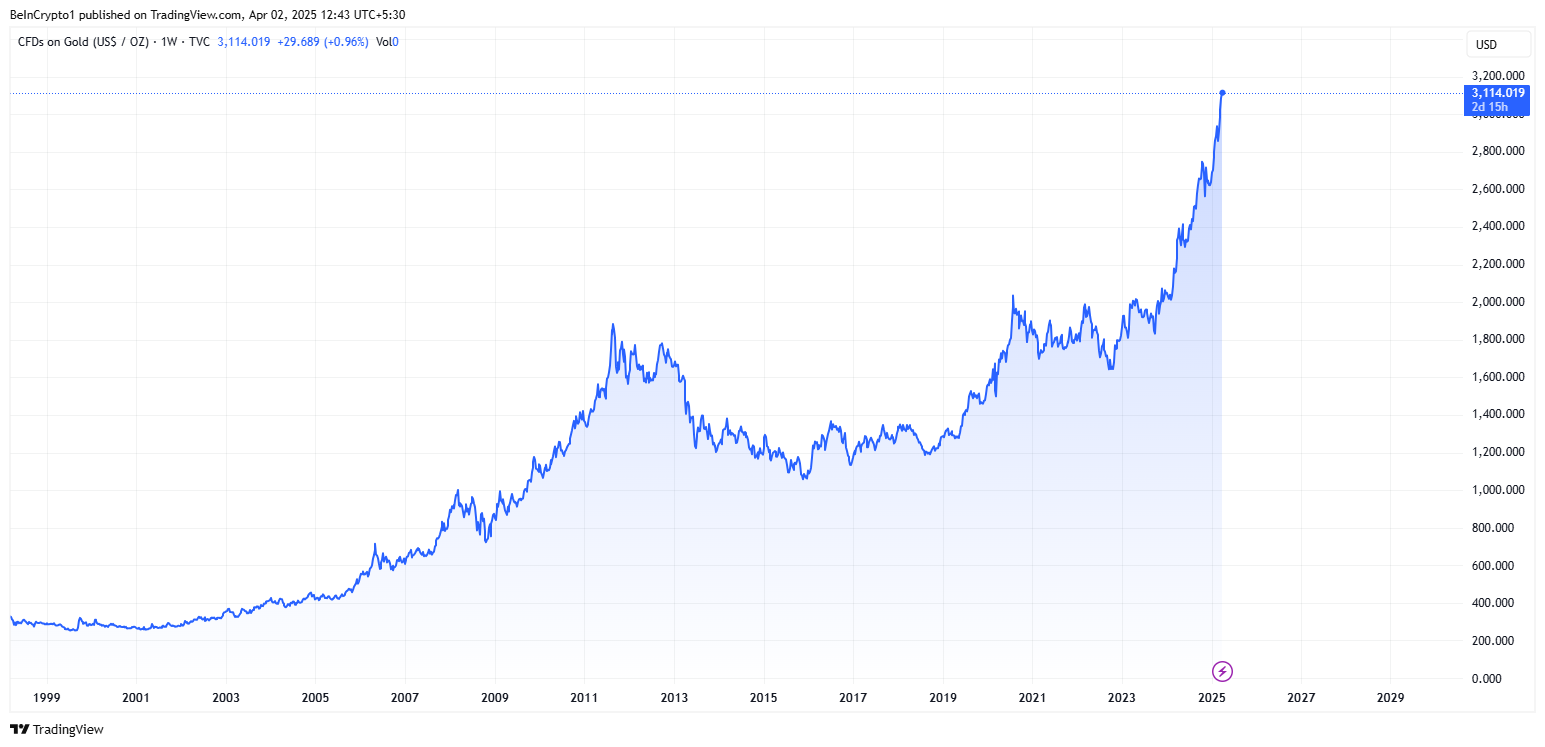
Don Tapscott, co-founder of Blockchain Research Institute, argues that tokenized gold could transform the $13 trillion gold market by bringing transparency, liquidity, and new financial models.
Based on this assumption, he questioned why gold is still stored in vaults as it was in the 1800s. Meanwhile, assets like Bitcoin (BTC) and stablecoins have gone digital. He believes blockchain technology can revolutionize gold’s role in finance.
“The US government could even tokenize its gold reserves, track them immutably, and use them in innovative ways,” Tapscott explained.
He stated that such an outcome would enable fractional ownership, on-chain verification, and increased accessibility to investors worldwide.
Meanwhile, companies such as Paxos and Tether lead the charge in tokenized gold offerings. Paxos holds a 51.74% market share, while Tether’s holdings follow closely behind at 46.69%.
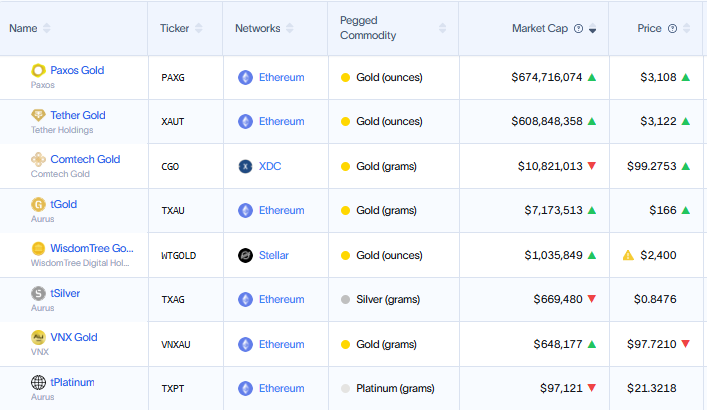
Publicly listed Matador Technologies is taking a unique approach by tokenizing gold on the Bitcoin blockchain. This offers investors a digital claim on both physical gold and limited-edition digital art.
“We believe that the next generation of financial powerhouses will likely emerge from the tokenization revolution. It’s still early, and the playing field is wide open. Matador and others have the bull by the horns,” Tapscott noted in a recent article.
Gold Tokenization in the US: A Bold Policy Shift?
The momentum behind tokenized gold has also reached the US government. Following President Trump’s March 5 executive order to establish a Strategic Bitcoin Reserve (SBR), policymakers are exploring ways to modernize gold holdings.
Treasury Secretary Scott Bessent has indicated that the US will move to “monetize its assets,” leading some to speculate that Fort Knox gold could be tokenized.
“US Treasury Secretary Scott Bessent says, all the GOLD is there, as he has no plans to visit Fort Knox or to revalue GOLD reserves in a sovereign wealth fund. He speaks on “Bloomberg Surveillance,” Erik Yeung noted.
Senator Cynthia Lummis has also proposed swapping some of the US government’s gold reserves for Bitcoin. US gold reserves are held at a book value of $42 per ounce—unchanged since 1973—despite the market price exceeding $3,000 per ounce.
While the US explores tokenization, geopolitical rivals China and Russia may take an even bolder step—launching a gold-backed stablecoin. Bitcoin maximalist Max Keiser recently highlighted BRICS’ plans to introduce a gold-backed stablecoin.
“The BRICS, principally Russia, China & India, will counter any attempt by the US to introduce a hegemonic, USD-backed stablecoin — with a Gold-backed stablecoin. The majority of the global market will favor a Gold-backed coin since it’s inflation-proof (unlike the USD) and doesn’t boost unwelcome US hegemony. India already runs on a defacto Gold standard and Sharia law in Muslim countries would dictate Gold over a USD riba-coin as well. To be clear, a BTC-backed stablecoin is not fit for purpose due to volatility,” Keiser stated.
Further, Keiser suggested that a stablecoin backed by gold would outcompete USD-backed stablecoins in global markets. He argues that gold is more trusted than the US dollar, tracks inflation effectively, and remains minimally volatile compared to Bitcoin’s price swings.
Russia’s recent rejection of Bitcoin for its National Wealth Fund in favor of gold and the Chinese yuan adds weight to this theory.
With an estimated 50,000 tonnes of combined gold reserves, China and Russia could leverage blockchain technology to introduce a new gold-backed digital asset. Such an action would challenge the US dollar’s dominance in global trade.
Gold vs. Bitcoin: The Safe Haven Debate Intensifies
Gold’s record-breaking rally has reignited debates over its role as a safe-haven asset compared to Bitcoin. Some analysts speculate that Bitcoin could soon follow gold’s trajectory, setting new all-time highs.
However, in economic uncertainty and President Trump’s 2025 tariff policies, gold remains the preferred safe-haven asset. Historically, gold has been the go-to store of value during trade wars and inflationary periods. Meanwhile, Bitcoin’s volatility raises concerns for risk-averse investors.
Despite these differences, the rise of tokenized gold highlights a convergence between traditional and digital finance. As financial markets advance and investors rebalance their portfolios, gold and Bitcoin will likely coexist in a contemporary monetary system.
Whether through tokenization, gold-backed stablecoins, or government-led blockchain initiatives, the financial playing field is shifting.
As traditional institutions increasingly adopt blockchain, the stage is set for transforming how the world perceives, trades, and stores gold relative to Bitcoin.
Disclaimer
In adherence to the Trust Project guidelines, BeInCrypto is committed to unbiased, transparent reporting. This news article aims to provide accurate, timely information. However, readers are advised to verify facts independently and consult with a professional before making any decisions based on this content. Please note that our Terms and Conditions, Privacy Policy, and Disclaimers have been updated.
Bitcoin
Institutional Risk Aversion Drives $218 Million Bitcoin ETF Outflows
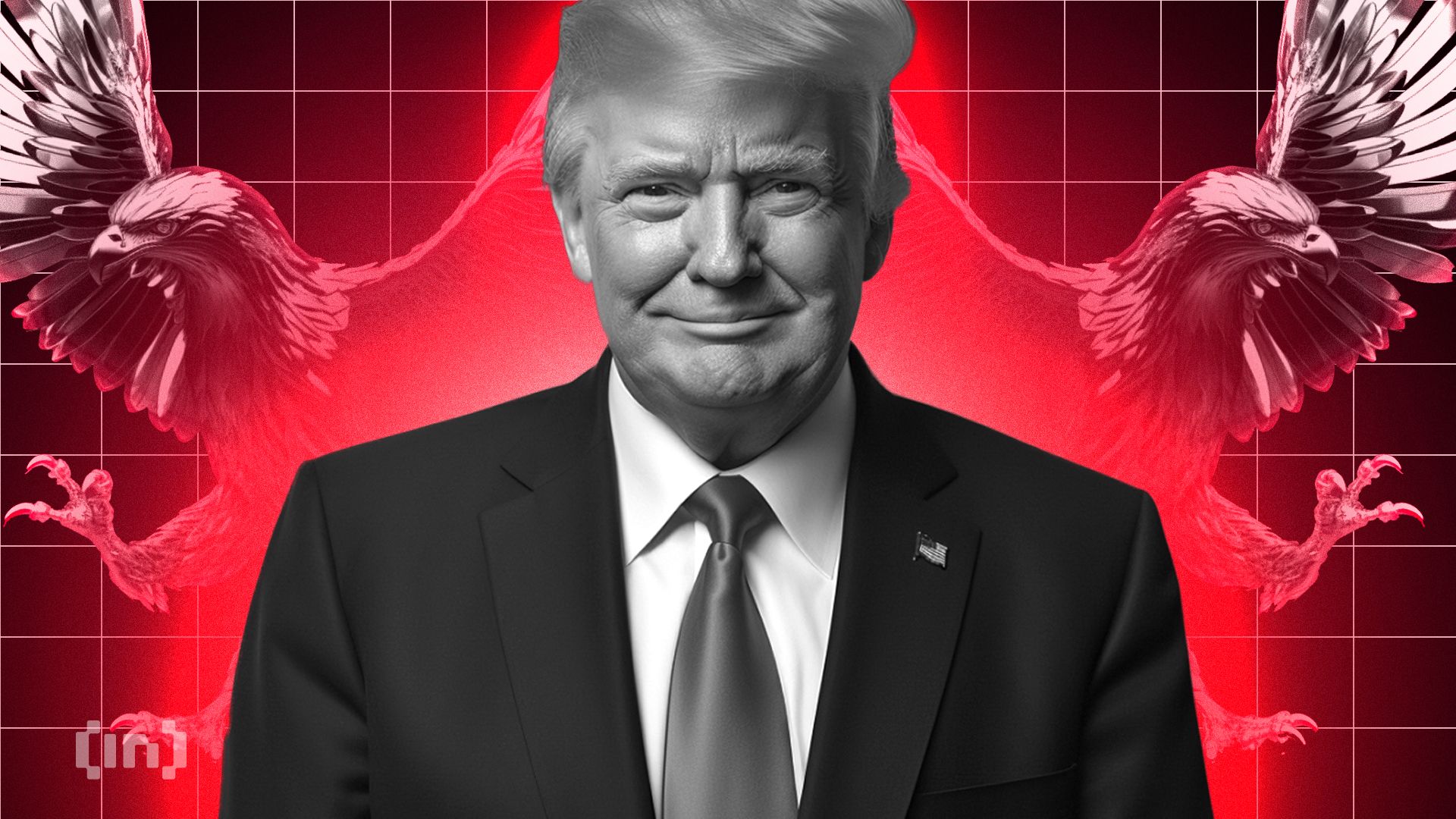
Bitcoin ETFs (exchange-traded funds) continue to record negative flows this week as President Trump’s Liberation Day countdown continues.
Sentiment is cautious across crypto markets, with traders and investors adopting a wait-and-see approach.
Bitcoin ETF See Outflows Amid Investor Caution
Data on Farside Investors shows two consecutive days of net outflows for Bitcoin ETFs since Monday. Financial instruments from Bitwise (BITB), Ark Invest (ARKB), and WisdomTree (BTCW) were in the frontline for Monday’s $60.6 million outflows, with only BlackRock’s IBIT seeing positive flows.
Meanwhile, Tuesday saw even more outflows, approaching $158 million, with Bitwise and Ark Invest leading the charge. Then, on April 1, BlackRock’s IBIT recorded zero flows. Meanwhile, Ethereum ETFs recorded net outflows of $3.6 million, data on Farside shows. This suggests a cautious sentiment among institutional investors.
“The Spot Bitcoin ETFs saw $157.8 million outflow yesterday. The Spot Ethereum ETFs saw a $3.6 million outflow. Institutions are reducing risk ahead of today’s tariff announcement,” analyst Crypto Rover noted.
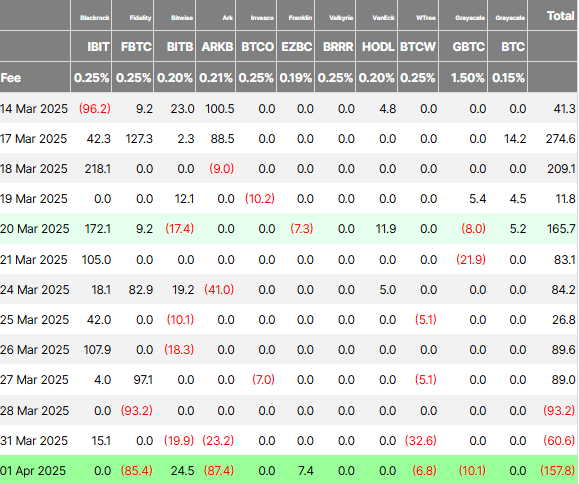
Indeed, sentiment suggests traders are exercising caution, choosing to remain in “wait-and-see” mode. The caution comes ahead of Trump’s Liberation Day announcement, which is due later in the day on April 2.
With POTUS poised to unveil sweeping new tariffs, traders and investors across financial playing fields wait to see the scope of an onslaught that could spark a global trade war. Specifically, there is generally very little information about the tariffs’ specifics, which creates uncertainty regarding their impact on the broader economy and the crypto market.
“The White House has not reached a firm decision on their tariff plan,” Bloomberg reported, citing people close to the matter.
Despite the lack of clarity, it is understandable why investors would be cautious considering the impact of previous tariff announcements on Bitcoin price. Meanwhile, analysts predict extreme market volatility, with potential stock and crypto crashes reaching 10-15% if Trump enforces broad tariffs.
“April 2nd is similar to election night. It is the biggest event of the year by an order of magnitude. 10x more important than any FOMC, which is a lot. And anything can happen,” economic analyst Alex Krüger predicted.
While sentiment is cautious in the crypto market, some investors are channeling toward gold as a safe haven. A Bank of America survey showed that 58% of fund managers prefer gold as a trade war safe haven, while only 3% back Bitcoin.
These findings came as institutional investors cite Bitcoin’s volatility and limited crisis-time liquidity as key barriers to its safe-haven adoption. Trade tensions have historically driven capital into safe-haven assets.
With Trump’s Liberation Day announcement looming, investors preemptively position themselves again, favoring gold over Bitcoin.
Nevertheless, despite Bitcoin’s struggle to capture institutional safe-haven flows, its long-term narrative remains intact. This is seen with Bitcoin supply on exchanges dropping to just 7.53%, the lowest since February 2018.
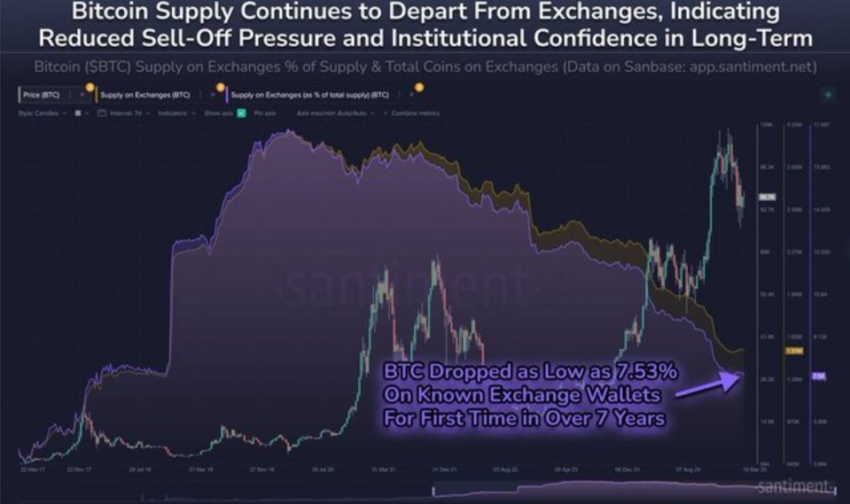
When an asset’s supply on exchanges reduces, investors are unwilling to sell, suggesting strong long-term holder confidence.
Disclaimer
In adherence to the Trust Project guidelines, BeInCrypto is committed to unbiased, transparent reporting. This news article aims to provide accurate, timely information. However, readers are advised to verify facts independently and consult with a professional before making any decisions based on this content. Please note that our Terms and Conditions, Privacy Policy, and Disclaimers have been updated.
Bitcoin
Bitcoin Could Serve as Inflation Hedge or Tech Stock, Say Experts
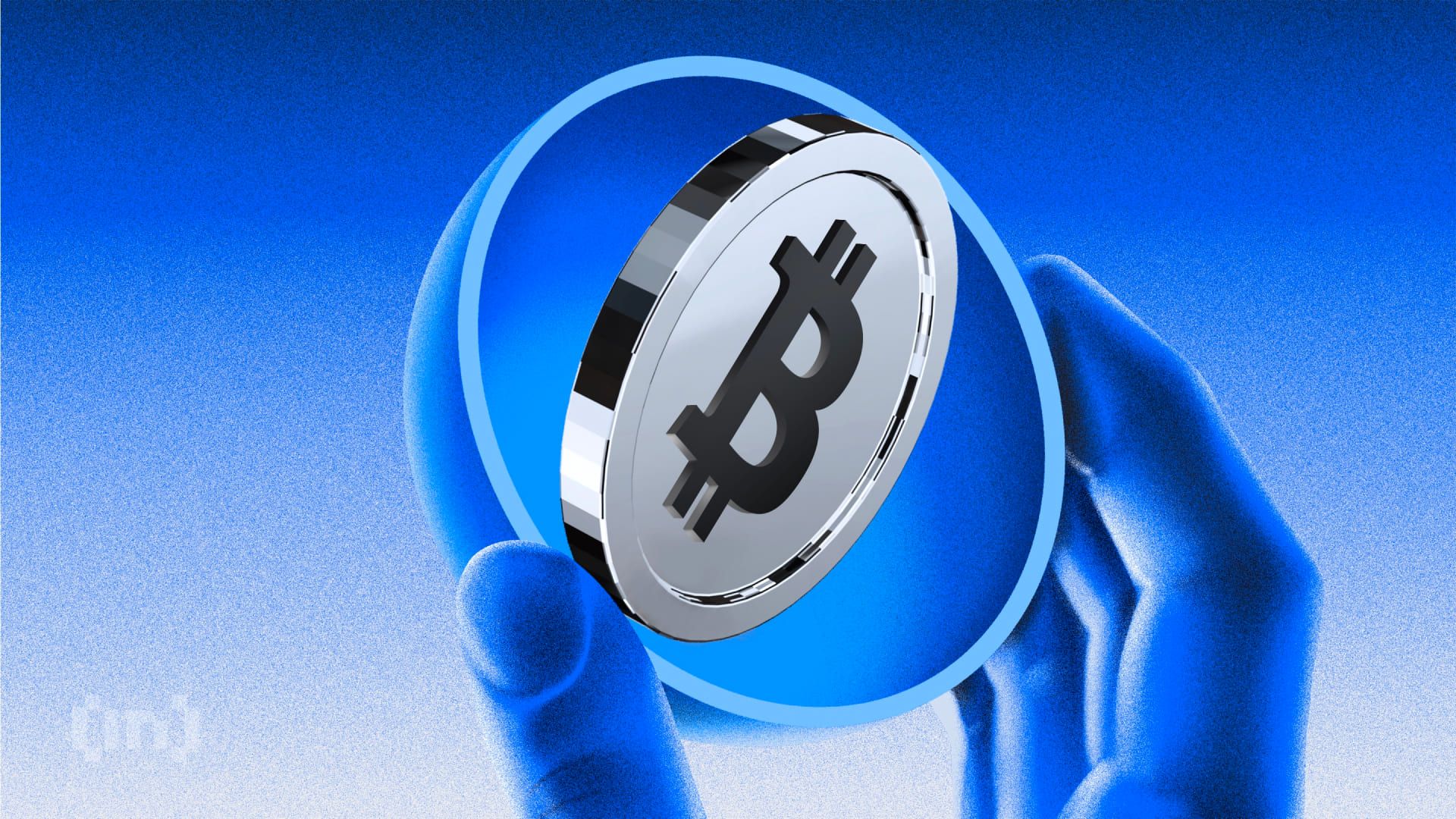
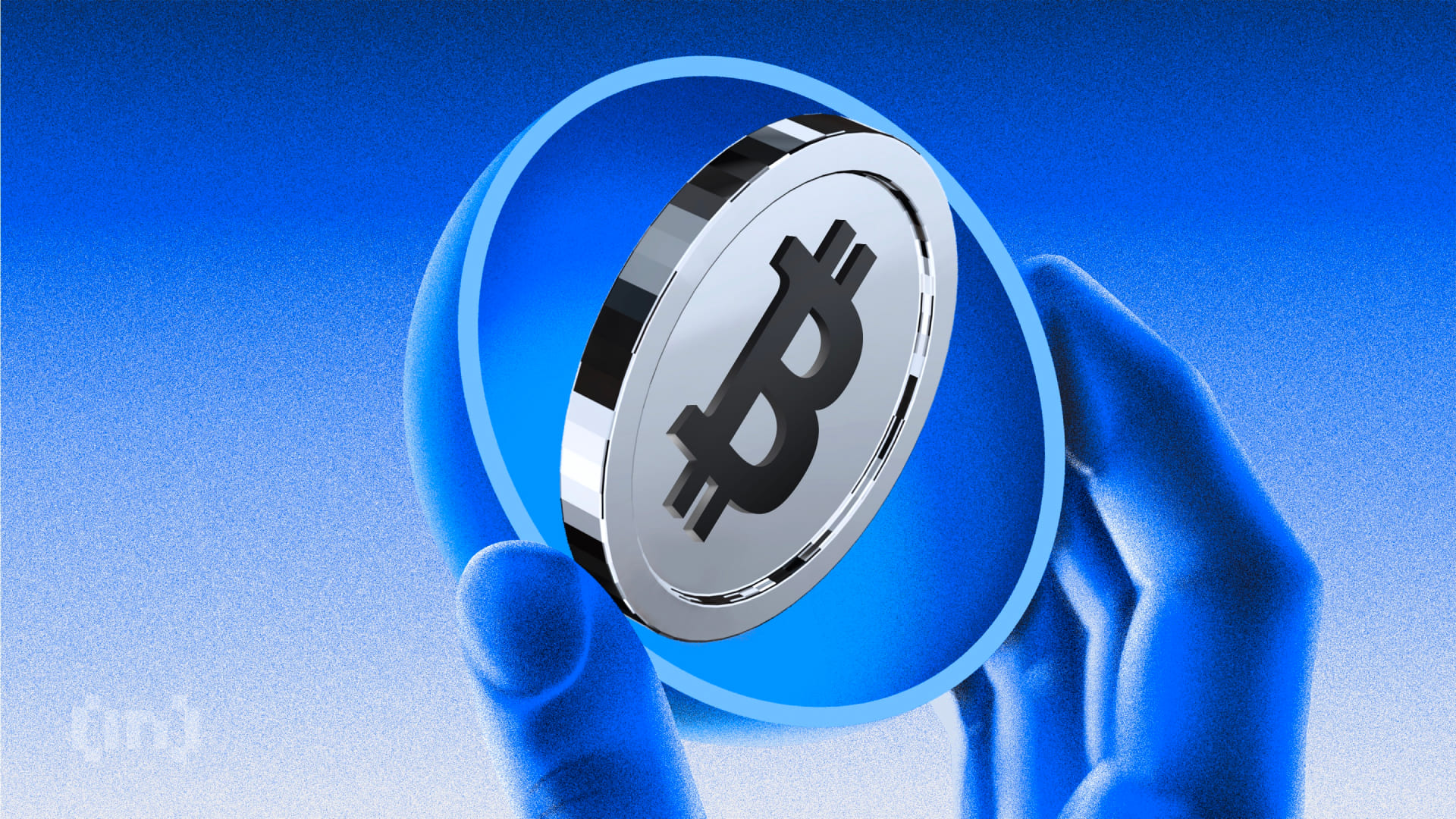
Bitcoin may be a useful hedge against inflation in the near future as market uncertainty is growing. In the long run, it may also be useful to envision Bitcoin differently, treating it as a barometer for the tech industry.
Standard Chartered’s Head of Digital Assets Research and WeFi’s Head of Growth both shared exclusive comments with BeInCrypto regarding this topic.
Bitcoin: Inflation Hedge or Magnificent 7 Candidate?
Since the early days of the crypto space, investors have been using it as a hedge against inflation. However, it’s only recently that institutional investors are beginning to treat it the same way. According to Geoff Kendrick, Head of Digital Assets Research at Standard Chartered, the trend of Bitcoin as an inflation hedge is increasing.
Still, this view may be too narrow in a few ways. Since the Bitcoin ETFs were first approved, BTC has been increasingly well-integrated with traditional finance. Kendrick noted this, saying that it is highly correlated with the NASDAQ in the short term. He claimed that Bitcoin might represent more than an inflation hedge, instead serving as an ersatz tech stock:
“BTC may be better viewed as a tech stock than as a hedge against TradFi issues. If we create a hypothetical index where we add BTC to the ‘Magnificent 7’ tech stocks, and remove Tesla, We find that our index, ‘Mag 7B’, has both higher returns and lower volatility than Mag 7,” Kendrick said in an exclusive interview with BeInCrypto.
This comparison is particularly apt for a few reasons. Tesla’s stock price is heavily entangled with Bitcoin, but it’s also been dropping due to political controversies. If Bitcoin were to replace Tesla’s position in the Magnificent 7, it may be a welcome addition. Of course, there is currently no mechanism to cleanly treat Bitcoin as a similar type of product. That could change.
However, Bitcoin’s role as an inflation hedge might be more immediately relevant. As Trump’s Liberation Day approaches, the crypto markets are becoming increasingly nervous about new US tariffs. As Agne Linge, Head of Growth at WeFi, said in an exclusive interview, these fears are impacting all risk-on assets, Bitcoin included.
“Crypto markets are closely tracking investor sentiment ahead of Trump’s…tariff announcement, with growing concerns over the potential economic impact. Bitcoin’s increasing correlation with traditional markets has amplified its exposure to broader macroeconomic trends, making it more sensitive to the risk-off sentiment that has affected equity markets,” Linge claimed.
She went on to state that US economic uncertainty was at record levels, surpassing both the 2008 financial crisis and the pandemic in April 2020. In these circumstances, recent inflation indicators are showing expected rates above expectations.
In such an environment, the crypto market is sure to take a hit, but traditional finance and the dollar is also in great jeopardy. All that is to say, Bitcoin is likely to be a solid inflation hedge in the near future. Even if it falls dramatically, it has worldwide appeal and the ability to rebound.
Disclaimer
In adherence to the Trust Project guidelines, BeInCrypto is committed to unbiased, transparent reporting. This news article aims to provide accurate, timely information. However, readers are advised to verify facts independently and consult with a professional before making any decisions based on this content. Please note that our Terms and Conditions, Privacy Policy, and Disclaimers have been updated.
-

 Bitcoin21 hours ago
Bitcoin21 hours ago$500 Trillion Bitcoin? Saylor’s Bold Prediction Shakes the Market!
-
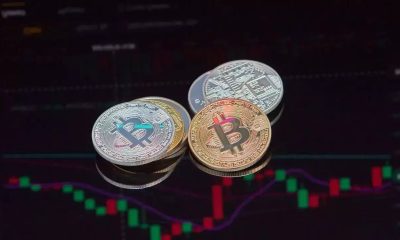
 Bitcoin22 hours ago
Bitcoin22 hours agoBig Bitcoin Buy Coming? Saylor Drops a Hint as Strategy Shifts
-

 Market21 hours ago
Market21 hours agoCoinbase Stock Plunges 30% in Worst Quarter Since FTX Collapse
-
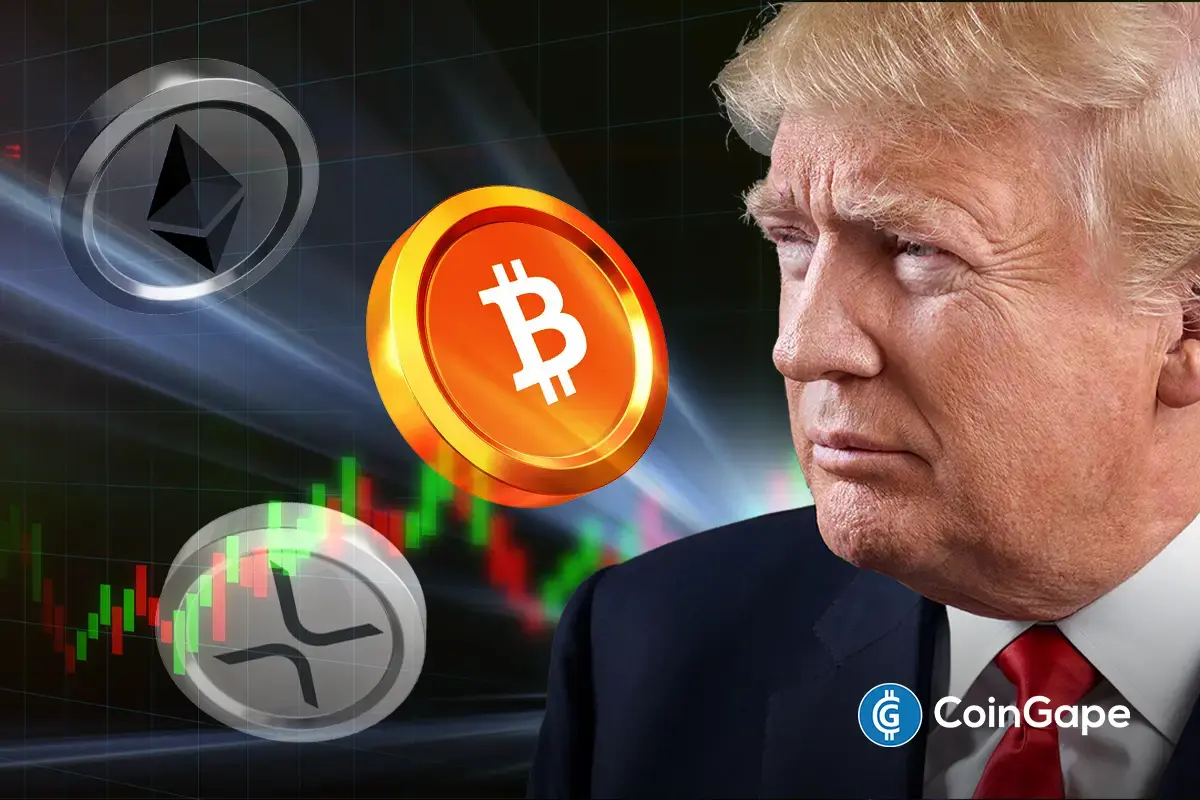
 Altcoin20 hours ago
Altcoin20 hours agoWill XRP, SOL, ADA Make the List?
-
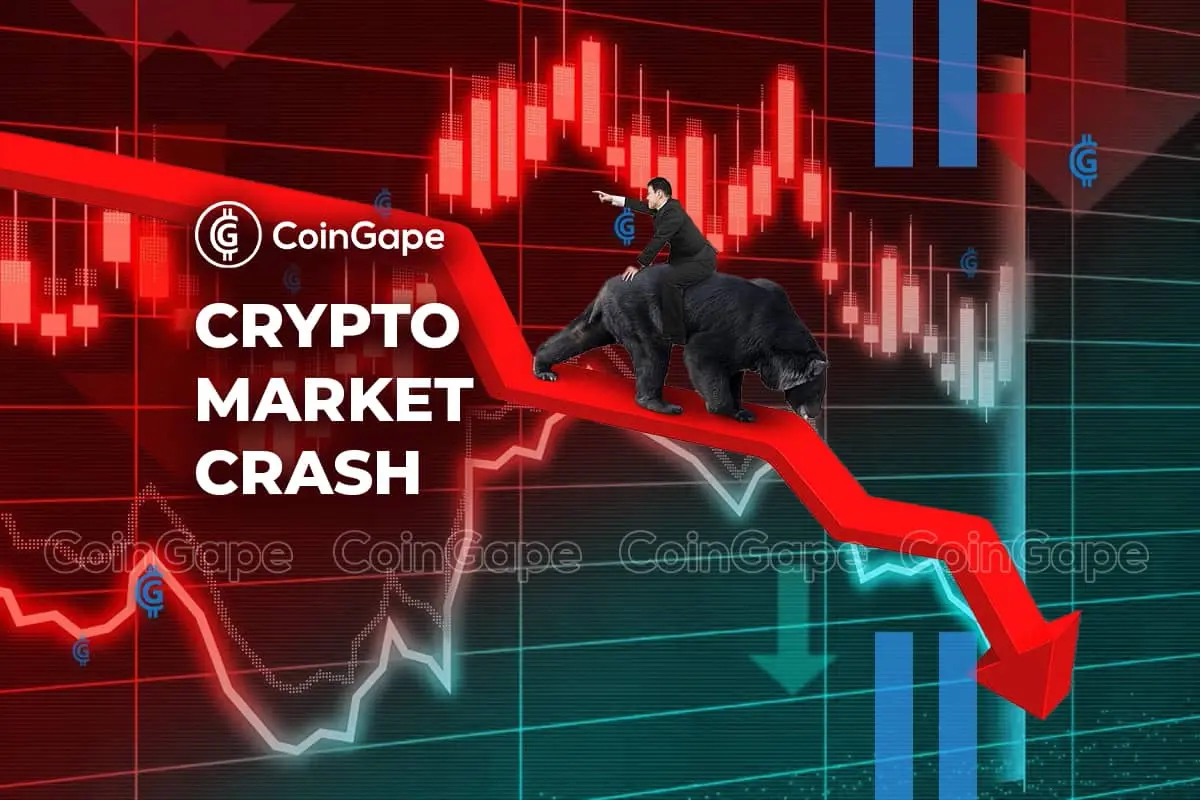
 Altcoin19 hours ago
Altcoin19 hours agoBTC, ETH, XRP, DOGE Fall Following Weak PMI, JOLTS Data
-

 Altcoin18 hours ago
Altcoin18 hours agoBinance Update Sparks 50% Decline For Solana Meme Coin ACT: Details
-

 Market23 hours ago
Market23 hours agoXRP Price Struggles as Whale Selling Rises To $2.3 Billion
-

 Market22 hours ago
Market22 hours agoFake Gemini Bankruptcy Emails Target Users






